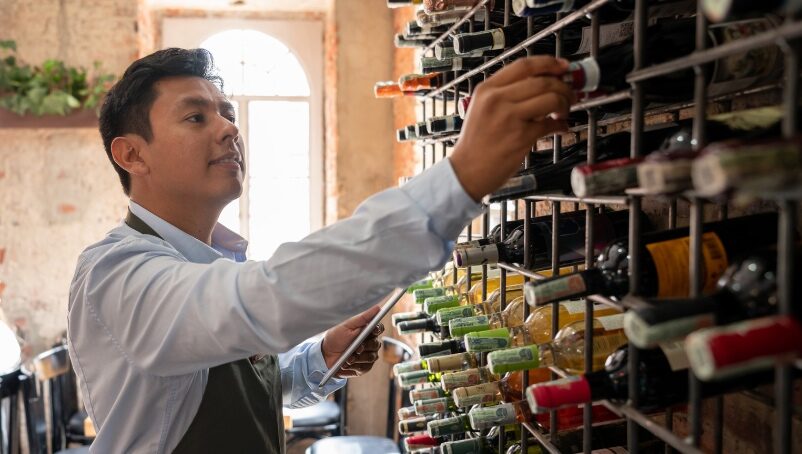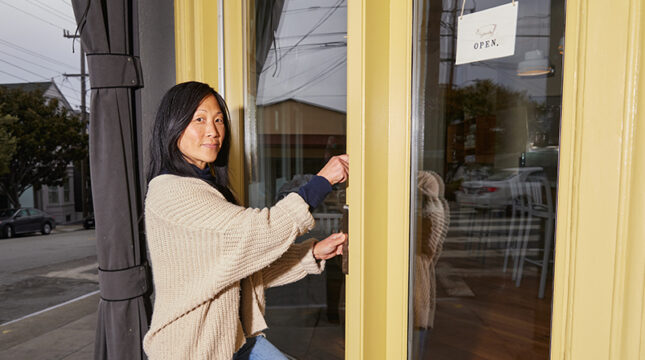Do you need a Texas liquor license to sell alcohol?
If you’re a current or aspiring business owner looking to operate a business that serves alcohol in Texas, obtaining a license issued by the Texas Alcoholic Beverage Commission (TABC) is a must. TABC is the foundation for all things related to alcohol licensing, whether your venture is in retail, manufacturing or distribution/wholesale.
Texas has statewide alcohol laws but adopts a unique approach called the “Local Option”, which allows individual cities or counties to determine what kinds of alcohol (if any) can be sold within their borders. As a result, the rules can vary considerably depending on where you open your business.
For example, out of 254 Texas counties:
- 5 counties are completely dry, forbidding alcohol sales entirely.
- 59 counties are entirely wet, with no restrictions on alcohol sales.
The remaining counties have a combination of wet and dry cities and municipalities. This means you’ll need to pay close attention to the specific laws in your area to ensure compliance.
How much is a liquor license in Texas?
The cost of a liquor license is an essential piece of the financial puzzle for your business. Your price varies depending on what type of alcohol you’re planning to sell. The TABC has a license and permit fees chart, but here’s a quick rundown:
- For beer only: A Retail Dealer’s On-Premise License (BE) will cost you $1,100.
- For wine and beer: A Wine and Malt Beverage Retailer’s Permit (BG) will set you back $1,900.
- For the full range (beer, wine and spirits): A Mixed Beverage Permit (MB) or Mixed Beverage with Food and Beverage Certificate required (MB/FB) is priced at $5,300.
TABC licenses are valid for two years. However, you must also consider the additional fees your local authorities may require for license approval. While the TABC caps local fees, the exact amount can vary based on your business location. So, it’s a good idea to check with local authorities for a complete picture of what your license will cost.
How to get a liquor license in Texas
The TABC offers different licenses depending on the type of business you want to open and the variety of alcohol you plan to serve or produce.
For those in the food service industry, the three Texas liquor licenses you’ll consider are:
- Retail Dealer’s On-Premise License (BE): Allows the sale of beer only.
- Wine and Malt Beverage Retailer’s Permit (BG): Allows the sale of beer and wine.
- Mixed Beverage Permit (MB): Allows the sale of mixed drinks, cocktails and spirits, in addition to beer and wine.
Additionally, some locales in Texas require food to be provided whenever alcohol is served. If you own an eatery, you’ll have no problem meeting this requirement, but you must also apply for a Food and Beverage Certificate (FB) from the TABC.
The TABC website has an online portal for liquor licensees and applicants called the Alcohol Industry Management System (AIMS). This one-stop portal has everything you need to apply, including the proper forms, documents to upload, and even signs you may have to post in your establishment.
Although paper applications are still an option, using AIMS is faster and more efficient. First, create your account in AIMS. It will guide you through the application process. The rest of this list will highlight key things you’ll need to do along the way:
- Select the right license: Whether it’s BE, BG, MB or MB/FB, choose the license that fits your business needs.
- Register your business: All businesses register with the Texas Secretary of State and the Comptroller of Public Accounts. The Small Business Administration has resources to help you with federal registration requirements.
- Get the required signs: Visit the TABC’s sign Requirements page for details on signage.
- Complete your application: Follow the steps in AIM for a smoother process. If you opt for paper applications — which take longer to process — you’ll fill out the Prequalification Packet, Location Packet and Business Packet. Make sure to complete the public notice, publisher’s affidavit and all city, county and state certificates.
- Submit a complete application: Ensure you fill out all parts of your application. It must also be signed and notarized.
- Keep wait time in mind: It can take about 50 days from when TABC receives a complete application to issue a new license. Factor in the wait time, especially if you’re opening a new business or location.
Should you have any questions, your local TABC office can walk you through the process and answer them.
How long does it take to get a liquor license in Texas?
Getting a liquor license in Texas takes about six to nine weeks, according to the TABC. However, it warns that the actual time can vary. It depends on the type of license you need and the specific requirements of your local city and county authorities. In some situations, it can take longer than 60 days.
It’s important to start your application process as early as you can. This way, you’ll have your license in hand and be ready to serve or sell alcohol without any unnecessary delays.
Insurance for a liquor license in Texas
Like employee certification, no Texas laws require eateries to purchase business insurance, but that doesn’t mean you don’t need it.
Liquor liability insurance
Your business could be held responsible if a guest leaves your establishment intoxicated and causes damage or harm. Liquor liability insurance can help cover court costs, medical bills, property damage and related fees in these situations.
General liability insurance
From slips and falls to property damage to customer injury, working with the public is full of some of the risks that general liability insurance can help protect you from.
Workers’ compensation insurance
Texas doesn’t require most private employers to have it, but workers’ compensation insurance is a smart business choice. Without it, you could end up paying out-of-pocket for an employee’s medical expenses should they get injured on the job.
Commercial property insurance
From tornados to hail to floods, the weather in Texas can wreak havoc on even the strongest building. Be sure your business is protected with commercial property insurance.
Texas liquor license requirements
Requirements to receive a TABC license include:
- Age: You must be at least 21 years old.
- Moral turpitude: No immoral, unethical, dishonest or unjust violations of the alcohol code in the last six months
- Law compliance: Ensure you haven’t violated the Texas liquor and alcohol code in the past two years.
- Criminal history: You should not have any felony convictions in the past five years.
- Tax status: Be current on all tax obligations.
- Moral character: Demonstrate “good moral character” per TABC standards.
Keep in mind your local city or county may have additional rules. These could include specific ordinances, zoning requirements, insurance mandates, fees, standards for late-hour operations or certificate of occupancy needs.
To get the full picture, it’s wise to consult with your local City Clerk’s Office or City Secretary. They can provide detailed information on local liquor license requirements.
Texas liquor license renewal
TABC licenses are good for two years and expire on the second anniversary of their issuing date. As long as your taxes are paid, you can renew online through the AIMS portal with just a few clicks.
Renewal fees for the BE (beer only) and BG (wine and beer) are the same as the initial price, while the MB/FB (beer, wine and spirits with food and beverages) costs about half as much. Here’s what you can expect:
- For beer only: The price tag to renew a Retail Dealer’s On-Premise License (BE) is $1,100.
- For wine and beer: It costs $1,900 to renew a Wine and Malt Beverage Retailer’s Permit (BG).
- For the full range (beer, wine and spirits): You’ll get a break on the renewal cost of a Mixed Beverage Permit (MB) or Mixed Beverage with Food and Beverage Certificate required (MB/FB), which is priced at $2,650.
Business owners may file renewals within 30 calendar days after their expiration date. However, if you miss the deadline, you’ll pay an extra $100 for a late fee for each license/permit, in addition to the other costs.
Note that additional fees may be due to your city or county. Contact those authorities to determine what amounts, if any, may be due.
Is a liquor license in Texas transferable?
The TABC doesn’t allow the transfer of liquor licenses from person to person. If you’re buying an existing business, you (as the new owner) must apply for your own license or permit.
You can transfer a license or permit from one location to a new one, but only with TABC approval. Licenses to sell beer must stay within the original county, but liquor permits can transfer to another location in Texas.
Texas liquor license liability and dram shop laws
In Texas, there are no laws requiring employee training to serve alcohol. However, TABC strongly encourages businesses to have all their employees be TABC certified.
Adopting a policy of mandatory TABC certification for employees provides a significant advantage known as “safe harbor.” In instances of an unlawful sale of alcohol — for example, to a minor or an intoxicated individual — this “safe harbor” status offers some protection.
If you ensure all employees receive proper training and certification, you may avoid administrative penalties from the TABC should such a sale occur.
Texas operates under what’s known as dram shop liability. This is an important concept for any business that sells or serves alcohol. Essentially, it means that your establishment could be held legally responsible if it sold or served an alcoholic beverage to a customer who was intoxicated and that customer went on to cause injuries and property damage due to their intoxication.
Let’s illustrate with a scenario: Imagine a customer celebrating a job promotion at your bar. They’re visibly intoxicated but continue to be served drinks. Later, they’re involved in a traffic accident, causing injury to another person. In this case, if it’s proven that the customer was over-served at your bar while already intoxicated, your business could face legal action for any damages or injuries caused by that customer.
How NEXT helps support Texas bars, restaurants and food and beverage businesses
NEXT has customized business insurance on tap. We offer tailor-made liquor liability insurance alongside our general liability coverage. You get just the right amount of insurance to help protect yourself and your food and beverage business.
Get a quote, choose your coverage options, buy your policy and get your certificate of insurance — all in about 10 minutes.
Start a free quote with NEXT.






